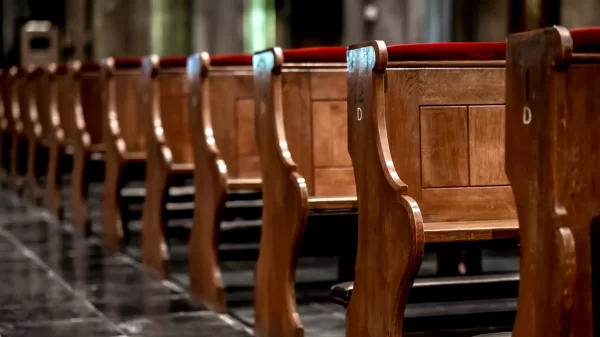By Lee Hedgepeth
Alabama Political Reporter
Alabama Senator Hank Sanders, D-Selma, has put forward a bill, Senate Bill 244, that would prevent a practice unique to Alabama known as “sentence conversion” in which a judge is allowed to override a jury recommendation of life without parole in favor of execution. It is currently pending committee action in the Alabama Senate.
The practice of sentence conversions is only used in our state, and can be utilized by elected judges. Because of this and other facts, their use has recently come into the national spotlight.
Fifty years ago, politics in Alabama was a different kind of ball game. With Southern Democrats still clinging to power in the heart of Dixie, the era of George Wallace’s imperialistic style of governing was still upon us. Some politicians still active in the state today recall a time when the Governor would himself choose even the committees on which each state legislator would serve. Many would make the comparison to Huey P. Long, though Wallace would long deny he looked to the Louisiana populist’s career for inspiration, if not for ideology. Appointing judges, too, had been, as in the rest of the nation, the job of each state’s highest executive official, just as in the federal system, where the President, as he still does, appoints judges with the advice and consent of the Senate.
However, because of the kneejerk anti-gubernatorial attitude that then arose from Dixiecrat infighting, power began to shift. The Office of the Governor, one can be assured, does wield the influence it once did. The power, as the sentiment went, was to go to the people. So judges in Alabama were then thrown at the mercy of the public. And they still are. Like it or hate it, elections are Alabama’s way of deciding who decided. Some say this leads to accountability to the people: positive accountability. Some, though, like Supreme Court Justice Sonia Sotomayor believe this accountability has led to unnecessary and arbitrary abuse.
Last year, the United States Supreme Court recently denied to hear a death penalty case from Alabama involving Mario Woodward, who was convicted of killing a Montgomery police officer. In sentencing, the jury voted 9-3 to put Woodward behind bars for life. The judge, however, set aside the jury’s decision and converted Woodward’s sentence to the death penalty. Oddly enough, the judge does have the legal ability to do so.
According to Sotomayor’s opinion, in which she says she would have agreed to hear the case because of its seriousness, she details not only that Alabama is the only state in which judges have done so in the last decade, but that they do it more often than you might think. 98 times Alabama judges have set aside the verdicts of the jury in order to inflict the death penalty– compared to only nine times in which a judge has converted a death sentence to life in prison. In addition, several of the juries had been unanimous in their life decision.
And Sotomayor had no qualms in claiming that this is a direct result of judicial elections — judges more worried about being tough on crime than on principles of justice like trial by jury. She cites evidence of several judges who used these specific cases in campaign ads. One ad even went as far as to name the death row inmate in question. For example, former Alabama Supreme Court Justice Harold See ran a 2000 campaign ad in which he hailed the life-to-death conversion as “fighting against minor technicalities.”
A former Supreme Court Justice has come out on the issue as well. Sandra Day O’Connor has labelled partisan judicial elections as “one of the issues the Founders fought against.” Several of the judges in question were contacted by APR. None responded.
The Alabama Political Reporter will have an eye on the proposal, Senate Bill 244, as the legislature convenes again beginning tomorrow. The bill will soon go before the Senate Committee on Criminal Law and Procedure for consideration.






















































